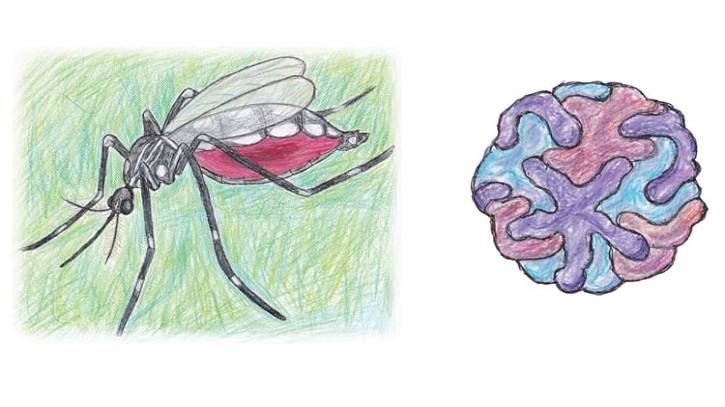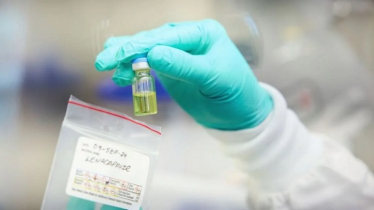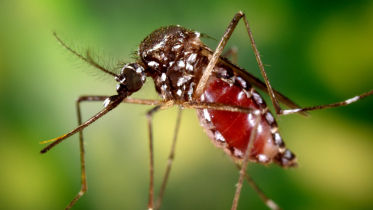
DHAKA – A significant scientific advancement is bringing fresh hope to Bangladesh in its fight against dengue fever. An international team of researchers has successfully developed a type of Wolbachia-infected Aedes aegypti mosquito, adapted to the local environment of Dhaka city, often referred to as a "good mosquito."
This promising development opens new avenues for Bangladesh to utilize a safe and biological method to control the spread of dengue and other mosquito-borne or arboviral virus infections.
The findings of this research were recently published in the prestigious journal Nature's Scientific Reports.
The research team comprises scientists from the QIMR Berghofer Medical Research Institute (QIMRB) and the University of Queensland in Australia, icddr,b in Bangladesh, and the Centers for Disease Control and Prevention (CDC) in the United States.
Dengue is currently a serious public health threat in Bangladesh, with a record number of over 321,000 cases and more than 1,700 deaths in 2023, making it the deadliest year on record.
Urbanization, irregular rainfall, and warmer temperatures are exacerbating the spread of Aedes mosquitoes, the primary vector for dengue. Furthermore, the effectiveness of conventional insecticide-based mosquito control is diminishing due to increasing insecticide resistance among mosquitoes.
This has prompted scientists worldwide to seek more sustainable solutions, one of which is the strategy of using "good mosquitoes."
The reason for using Wolbachia is that it prevents Aedes mosquitoes from transmitting dengue, chikungunya, and Zika viruses. Importantly, it does not harm humans or the environment.
Wolbachia is a naturally occurring bacterium commonly found in butterflies, fruit flies, and some mosquitoes, but not in Aedes mosquitoes. This bacterium cannot infect humans or animals and does not spread through bites or contact.
Introducing Wolbachia into Aedes mosquitoes is used in two main strategies to combat mosquito-borne virus infections:
The first is the suppression strategy, where only male Wolbachia-infected or "good" mosquitoes are released into the environment. When these males mate with female mosquitoes, the resulting eggs do not hatch, leading to a reduction in the mosquito population.
The second is the replacement strategy, where both male and female "good mosquitoes" are released. The Wolbachia-infected female mosquitoes pass the bacteria on to their offspring through their eggs, generation after generation. Even when they mate with uninfected males, their offspring carry Wolbachia, eventually replacing the wild mosquito population.
Both strategies have achieved significant success in various countries.
In North Queensland, Australia, the replacement strategy has reduced dengue cases by up to 96 percent over the past decade. Trials in Indonesia, Brazil, Colombia, Malaysia, Singapore, and the United States have also shown up to 95 percent success in reducing mosquito populations.
This new research utilized a Wolbachia strain adapted to Dhaka's warm and humid climate. Researchers initially crossbred a Wolbachia-infected Aedes aegypti strain from Queensland, Australia, housed at QIMRB, with wild mosquitoes collected from Dhaka. Through multiple generations of breeding, they developed a "good mosquito" strain that reliably transmits Wolbachia to subsequent generations through its eggs.
The research team evaluated the dengue-blocking ability of this "good mosquito" strain. The results showed that these Wolbachia-carrying mosquitoes reduced the ability of dengue virus to infect them by 92.7 percent compared to обычные (ordinary) uninfected mosquitoes. The researchers also measured various aspects of these mosquitoes in laboratory cages, such as fecundity (number of eggs), fertility (hatching rate of eggs), and survival (proportion of dead mosquitoes after 28 days).
The study found that these "good mosquitoes" adapted for Dhaka have similar survival and reproductive capabilities to local mosquitoes, making them suitable for release into the environment.
Dr. Mohammad Shafiul Alam, a scientist at icddr,b, stated, "There may naturally be concerns about releasing mosquitoes into the environment, but these are not genetically modified. These are 'good mosquitoes' that carry a natural bacteria. Research has shown that it is not harmful but beneficial. Wolbachia has been used safely in many countries and can open a new path of defense for Bangladesh against dengue and similar viruses."
Beyond dengue, these "good mosquitoes" could also be helpful in controlling other emerging viruses. Wolbachia has also been proven to inhibit the transmission of Zika and chikungunya viruses.





